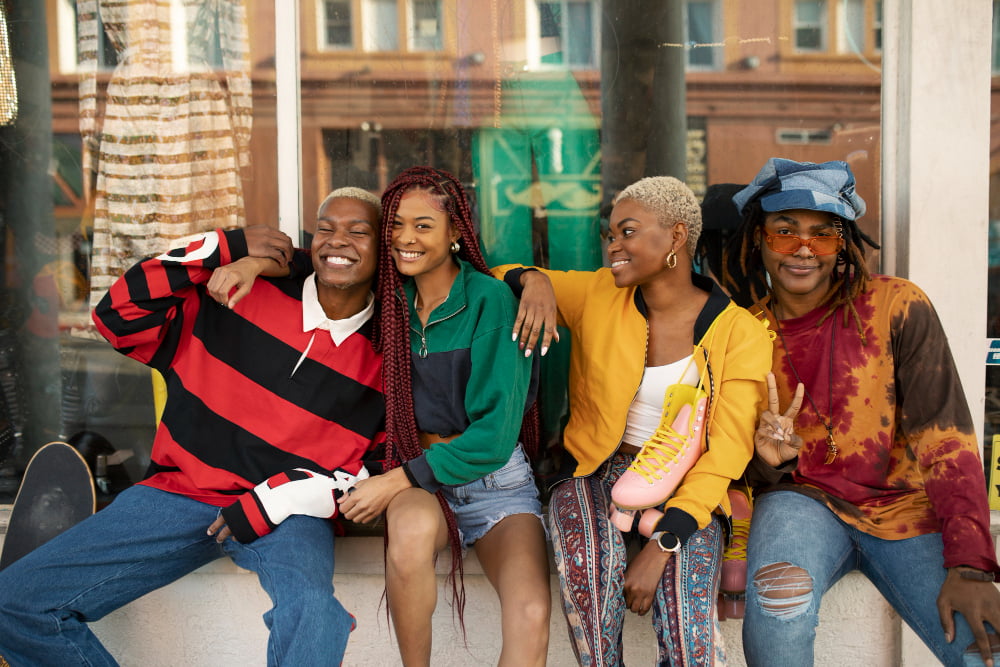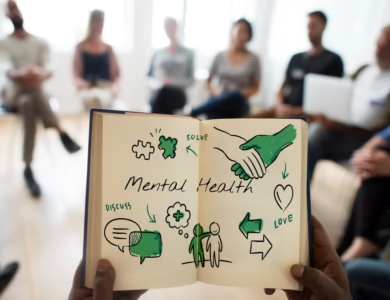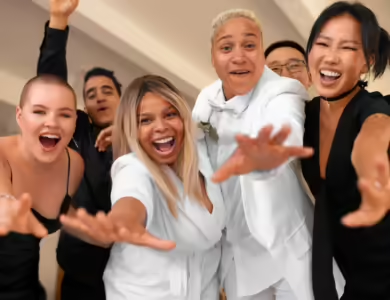20 Unifying Black History Month Event Ideas to Celebrate Heritage

Many organizations face the challenge of creating impactful black history month events that truly resonate with their communities. The good news is that a wealth of inspiring black history month event ideas are waiting to be explored. By embracing these opportunities, you can transform your African American history events into powerful celebrations that educate, unite, and inspire attendees of all backgrounds.
Inspiring Black History Month Event Ideas That Educate, Celebrate, and Empower
Black History Month celebrations offer a unique opportunity to showcase the rich tapestry of African American culture and achievements. These events serve as powerful platforms for fostering understanding, promoting diversity, and cultivating inclusion within our communities. By curating a thoughtful array of Black heritage events, organizers can create spaces that not only honor the past but also inspire future generations.
From engaging workshops to vibrant cultural performances, the following list presents a diverse range of African American cultural events designed to captivate and educate participants. Each idea aims to highlight different aspects of Black history and contemporary experiences, ensuring a well-rounded and impactful celebration.
A – Educational Events
1. Historical Reenactments or Living History Museums
Historical reenactments and living history museums offer a transformative approach to experiencing Black history. These immersive events transport attendees to pivotal moments in African American heritage, creating a tangible connection to the past. By featuring actors in period-accurate costumes and meticulously recreated settings, historical reenactments for Black History Month bring textbook narratives to life, making learning both engaging and memorable.
Among the most powerful black history month event ideas, living history experiences provide a unique opportunity for visitors to step into the shoes of those who shaped African American history. These interactive history events allow participants to witness key moments firsthand, from the struggles of the Underground Railroad to the triumphs of the Civil Rights Movement. Educational Black History Month events of this nature foster a deeper understanding of the challenges faced and the resilience demonstrated throughout Black history.
Black heritage reenactments go beyond traditional learning methods, encouraging active participation and dialogue. Attendees can engage with historical figures, ask questions, and even take part in period-appropriate activities. This hands-on approach not only makes history more accessible but also helps to contextualize past events within our contemporary society.
The impact of these events extends far beyond February, serving as catalysts for ongoing discussions about race, equality, and social progress. By offering such immersive and interactive experiences, living history museums and reenactments play a crucial role in educating, inspiring, and uniting communities in celebration of Black heritage.
2. Panel Discussions with Historians or Experts
Panel discussions for Black History Month offer a dynamic platform for deep exploration of African American heritage and achievements. By bringing together historians, scholars, and experts, these events provide attendees with nuanced perspectives on pivotal moments and influential figures in Black history. From the Civil Rights Movement to the groundbreaking contributions of Black inventors and leaders, these discussions illuminate the multifaceted tapestry of African American experiences.
Expert-led events like historian panels create a unique opportunity for community engagement and intellectual growth. As one of the most enlightening black history month event ideas, these sessions foster an environment where complex historical narratives can be unpacked and examined in detail. Attendees gain insights that go beyond surface-level understanding, challenging preconceptions and expanding their knowledge of Black heritage.
Educational Black History Month events of this nature serve as catalysts for meaningful dialogue and reflection. By providing a forum for questions and discussion, historical discussions encourage active participation and critical thinking. These Black heritage panels not only educate but also inspire attendees to consider how historical events continue to shape our present-day society.
The impact of expert discussions on Black history extends far beyond the event itself. They equip participants with knowledge and perspectives that can be shared within their communities, workplaces, and social circles. By fostering a deeper understanding of African American history and culture, these panel discussions contribute to building a more informed, empathetic, and inclusive society.
3. Film Screenings and Discussions
Film screenings for Black History Month offer a powerful medium to explore and celebrate African American heritage through visual storytelling. By showcasing a carefully curated selection of Black history films and documentaries, these events provide audiences with immersive experiences that bring historical narratives to life. From pivotal moments in the Civil Rights Movement to lesser-known stories of Black innovation and resilience, these screenings offer a window into the rich tapestry of African American experiences.
The impact of these film events for Black History Month extends beyond mere entertainment. As one of the most engaging black history month event ideas, movie screenings and talks create spaces for communal learning and reflection. By pairing screenings with post-film discussions led by scholars, filmmakers, or community leaders, these events transform passive viewing into active engagement with Black heritage.
Educational film discussions serve as catalysts for deeper understanding and dialogue. They provide context to the historical events portrayed on screen, allowing attendees to connect past struggles and triumphs with contemporary issues. These Black heritage film events encourage critical thinking and foster empathy, as viewers gain new perspectives on the complexities of African American history.
Furthermore, Black history documentaries screened during these events often shed light on overlooked aspects of history, filling gaps in traditional educational narratives. By exposing audiences to diverse stories and viewpoints, film screenings contribute to a more comprehensive and nuanced understanding of Black history, making them invaluable components of Black History Month celebrations.
4. Book Clubs and Author Talks
Book clubs for Black History Month offer a unique and engaging way to explore African American literature and history through the written word. These literary gatherings provide a platform for readers to immerse themselves in works by Black authors, fostering a deeper understanding of diverse perspectives and experiences. By focusing on Black heritage literature, these book club meetings create spaces for meaningful discussions about historical events, cultural identity, and contemporary issues affecting the African American community.
One of the most enriching black history month event ideas, Black History book clubs encourage participants to engage critically with texts, sharing insights and personal reflections. These events not only promote literacy but also cultivate a sense of community among readers who are eager to learn and discuss important themes in Black literature.
The author talks about how Black history elevates these literary experiences to new heights. By inviting Black authors to speak about their works, organizers create opportunities for direct engagement between readers and writers. These educational book events allow attendees to gain deeper insights into the creative process, historical research, and personal motivations behind the literature. Black author discussions often reveal untold stories and provide context that enriches the reading experience.
The impact of these literary events extends far beyond February, inspiring ongoing exploration of Black literature and history. By highlighting diverse voices and narratives, book clubs and author talks contribute to a more comprehensive understanding of the African American experience, fostering empathy and cultural awareness that resonates throughout the year.
5. Black History Trivia Contests
Trivia contests for Black History Month transform learning into an exciting, competitive experience that engages participants of all ages. These educational trivia events challenge attendees to showcase their knowledge of African American history, culture, and achievements, creating an atmosphere of friendly competition and collective learning. From pivotal moments in the Civil Rights Movement to groundbreaking contributions in science, arts, and politics, Black history trivia covers a vast array of topics that highlight the rich tapestry of African American heritage.
Among the most entertaining black history month event ideas, these quiz contests offer a unique blend of education and excitement. Participants are motivated to research and learn about Black history in preparation for the event, deepening their understanding of important figures, events, and cultural milestones. Black heritage quizzes serve as catalysts for curiosity, often inspiring attendees to explore topics further after the event.
Trivia night events centered on Black history knowledge tests create a communal learning environment where participants can share insights and learn from each other. These gatherings foster dialogue and discussion, allowing attendees to connect historical facts with contemporary issues and personal experiences. The competitive aspect of these events adds an element of fun that makes the learning process more engaging and memorable.
The impact of Black history quiz contests extends beyond the event itself, as participants carry their newfound knowledge into their daily lives. By making learning about African American history an enjoyable and social experience, these trivia events contribute to a more informed and appreciative community, fostering a deeper understanding of Black heritage that resonates long after Black History Month concludes.

B – Celebratory Events
6. Music and Dance Performances
Music and dance performances during Black History Month offer a vibrant celebration of African American cultural heritage and artistic innovation. These dynamic events showcase the evolution of Black music and movement, from traditional African rhythms to contemporary hip-hop beats. By featuring a diverse array of genres such as jazz, blues, gospel, and R&B, these performances illuminate the profound impact Black artists have had on shaping global music culture.
Among the most captivating black history month event ideas, these artistic showcases provide attendees with an immersive experience of Black heritage. Jazz concerts transport audiences to the smoky clubs of Harlem’s Renaissance, while blues performances evoke the soulful resilience of the Mississippi Delta. Hip-hop shows demonstrate the genre’s journey from urban street corners to international stages, highlighting its role as a powerful voice for social commentary and cultural expression.
African dance events offer a kinetic connection to ancestral traditions, showcasing the intricate movements and vibrant costumes that have influenced modern dance forms. These performances not only entertain but also educate, often accompanied by narration or multimedia presentations that provide historical context and cultural significance.
The impact of Black heritage music events extends far beyond entertainment. They serve as powerful reminders of the resilience, creativity, and cultural richness of African American communities. By celebrating these artistic traditions, Black History Month music and dance performances foster a deeper appreciation for the contributions of Black artists and their ongoing influence on global culture, inspiring both reflection on the past and excitement for future innovations.
7. Art Exhibitions and Showcases
Art exhibitions and showcases during Black History Month offer a powerful visual narrative of African American experiences, struggles, and triumphs. These cultural art events provide a platform for Black artists to share their unique perspectives, celebrating both historical legacy and contemporary creativity. Through a diverse array of mediums including paintings, sculptures, photography, and mixed media installations, these exhibitions create a multi-dimensional exploration of Black heritage and identity.
Among the most visually striking black history month event ideas, art showcases serve as catalysts for dialogue and reflection. Black artist showcases not only highlight the immense talent within the African American community but also offer insights into the social, political, and cultural contexts that shape their work. Visitors to these exhibitions are invited to engage with art that challenges, inspires, and educates, fostering a deeper understanding of Black history and contemporary issues.
Black heritage art displays often feature both established and emerging artists, creating a bridge between generations and artistic movements. These visual art exhibitions can trace the evolution of Black artistic expression from traditional African influences to contemporary urban styles, illustrating the rich tapestry of African American cultural contributions.
The impact of Black History Month art exhibitions extends far beyond the gallery walls. By providing visibility and recognition to Black artists, these events contribute to a more inclusive art world. They inspire young artists of color, educate the broader public about Black cultural heritage, and create spaces for cross-cultural understanding and appreciation. Through the power of visual storytelling, these art events for Black History Month leave a lasting impression, encouraging ongoing engagement with Black art and history throughout the year.
8. Fashion Shows Highlighting Black Designers
Fashion shows for Black History Month offer a vibrant and stylish celebration of African American creativity and cultural influence. These runway events showcase the innovative designs of Black fashion creators, from emerging talents to established icons in the industry. By featuring a diverse range of styles—from contemporary streetwear to haute couture inspired by traditional African aesthetics—these shows highlight the profound impact Black designers have had on global fashion trends.
As one of the most glamorous black history month event ideas, Black Designer showcases provide a platform for underrepresented voices in the fashion world. These events not only celebrate current talent but also pay homage to the rich history of Black contributions to fashion. From the Harlem Renaissance to modern-day red carpets, Black heritage fashion has consistently pushed boundaries and redefined style norms.
Cultural fashion events during Black History Month serve as powerful visual narratives of identity, resistance, and empowerment. Black designers’ runway shows often incorporate elements that speak to the African American experience, weaving stories of heritage and progress into each garment. These fashion events for Black History Month educate audiences about the cultural significance behind the designs, fostering a deeper appreciation for the artistry and symbolism in Black fashion.
The impact of Black history fashion shows extends far beyond the catwalk. By elevating Black designers and their work, these events challenge industry norms and promote greater diversity in fashion. They inspire young creatives of color, educate the public about Black cultural contributions, and create economic opportunities within the community. Through the lens of fashion, these shows celebrate Black excellence, creativity, and resilience, leaving a lasting impression that resonates long after the final walk.
9. Food Festivals Featuring Black Cuisine
Black History Month food festivals offer a tantalizing journey through the rich tapestry of African, Caribbean, and African American culinary traditions. These vibrant events celebrate the diverse flavors, ingredients, and cooking techniques that have shaped Black cuisine over generations. From soul food classics to innovative fusion dishes, these festivals showcase the creativity and resilience of Black communities as expressed through their culinary heritage.
Among the most appetizing black history month event ideas, Black cuisine events provide a unique opportunity for cultural exchange and education through food. Attendees can savor authentic dishes while learning about their historical significance and cultural context. These culinary events for Black History Month often feature cooking demonstrations, allowing participants to gain hands-on experience with traditional recipes and techniques.
Black heritage food festivals serve as powerful reminders of how food connects us to our roots and to each other. They highlight the ingenuity of Black cooks who transformed limited ingredients into nourishing, flavorful meals during times of hardship. Cultural food events also celebrate the evolution of Black cuisine, showcasing how traditional recipes have been adapted and reinvented in modern contexts.
The impact of these Black culinary showcases extends beyond the palate. They support Black-owned businesses, preserve culinary traditions, and foster community engagement. By bringing people together over shared meals, these food celebrations create spaces for dialogue and cultural appreciation. Through the universal language of food, these festivals offer a delicious and memorable way to honor Black history and culture, leaving attendees with a deeper understanding and appreciation of African American heritage.
10. Talent Shows
Talent shows for Black History Month serve as dynamic platforms to showcase the vibrant artistic expressions within African American communities. These events bring together performers of all ages, offering a stage for singers, dancers, poets, musicians, and other creatives to share their unique talents. Black heritage talent events not only entertain but also highlight the rich cultural diversity and artistic prowess that have long been hallmarks of African American contributions to the arts.
As one of the most engaging black history month event ideas, cultural talent shows foster a sense of community pride and unity. They provide emerging artists with valuable exposure and encourage intergenerational participation, creating a bridge between established traditions and contemporary interpretations. Black history talent contests often feature performances that blend historical themes with modern artistry, offering fresh perspectives on cultural heritage.
These community talent events play a crucial role in preserving and evolving Black cultural traditions. By providing a platform for various forms of artistic expression, from spoken word poetry that addresses social issues to dance performances that fuse traditional African moves with modern styles, these showcases celebrate the ongoing creativity and resilience of Black communities.
The impact of Black talent performances extends far beyond entertainment. They inspire young people to explore their artistic potential, promote cultural awareness, and strengthen community bonds. By spotlighting local talent, these events create a ripple effect of pride and inspiration, encouraging more individuals to embrace and share their cultural heritage through art. Talent shows during Black History Month serve as powerful reminders of the enduring spirit and creative force within African American communities.

C- Activist Events
11. Community Service Projects
Community service projects for Black History Month embody the spirit of activism and social responsibility that has long been a cornerstone of African American heritage. These initiatives provide tangible ways for individuals and groups to make a positive impact while honoring the legacy of Black leaders who fought for equality and justice. From neighborhood clean-ups to food drives and mentorship programs, these projects address current community needs while drawing inspiration from historical figures and movements.
Among the most impactful black history month event ideas, Black History service events offer participants the opportunity to engage directly with their communities. These volunteer projects not only benefit those in need but also foster a sense of unity and shared purpose among participants. By working together on Black heritage community service initiatives, people from diverse backgrounds can build connections and gain a deeper understanding of the challenges and strengths within their communities.
Social justice service projects during Black History Month often focus on issues that have historically affected African American communities, such as education equity, housing accessibility, and health disparities. These community activism events encourage participants to reflect on the ongoing struggle for equality and to take concrete steps toward positive change. Black history volunteer opportunities can range from one-day events to long-term commitments, allowing individuals to contribute in ways that fit their schedules and skills.
The impact of these service projects extends far beyond the month of February. They instill a sense of civic responsibility, empower individuals to become agents of change and create lasting improvements in communities. By engaging in hands-on service, participants not only honor Black history but also actively shape a more equitable future, embodying the principles of leadership and community upliftment that are central to African American heritage.
12. Voter Registration Drives
Voter registration drives for Black History Month honor the long struggle for voting rights in African American history while empowering communities for the future. These civic engagement events connect the past with the present, reminding participants of the sacrifices made by civil rights activists to secure the right to vote. By facilitating voter registration and providing educational resources, these drives ensure that the hard-won right to political participation is fully exercised.
As one of the most crucial black history month event ideas, Black Heritage voter drives serve a dual purpose of education and action. They offer a platform to discuss the historical context of voting rights, from the 15th Amendment to the Voting Rights Act of 1965, while simultaneously addressing current challenges to voter access. These voting events often feature speakers who can articulate the importance of civic engagement and its impact on community well-being.
Black history activism events like voter outreach initiatives play a vital role in combating voter suppression and increasing political representation. By assisting with registration processes, information about polling locations, and guidance on voter ID requirements, these drives remove barriers to participation. They empower individuals to have a voice in shaping policies that affect their communities, continuing the legacy of Black political activism.
The impact of these voter registration drives extends far beyond Black History Month. They foster a culture of ongoing civic engagement, encouraging year-round political awareness and participation. By linking historical struggles with contemporary civic responsibilities, these events inspire a new generation of engaged citizens committed to upholding and advancing the principles of democracy and equality.
13. Fundraisers for Black-Led Organizations
Fundraisers for Black History Month serve as powerful vehicles for community support and empowerment. These events channel resources directly into Black-led organizations and initiatives that are at the forefront of addressing critical issues within African American communities. From elegant galas and silent auctions to grassroots online campaigns, these fundraising events offer diverse ways for individuals and businesses to contribute meaningfully to causes that honor Black heritage and foster positive change.
Black-led organization fundraisers during this commemorative month highlight the ongoing work of nonprofits and community groups that carry forward the legacy of civil rights leaders and social justice advocates. These Black heritage fundraising events not only generate crucial financial support but also raise awareness about the missions and impacts of these organizations. By spotlighting their work, fundraisers educate donors about current challenges and opportunities within Black communities.
Nonprofit fundraising events organized for Black History Month often blend celebration with action. They may feature performances by local artists, speeches by community leaders, or exhibitions showcasing Black excellence, all while driving support for important causes. These Black history charity events create a sense of collective purpose, bringing together individuals from various backgrounds who share a commitment to equality and progress.
The impact of these community support fundraisers extends far beyond the funds raised. They strengthen networks of support, inspire new partnerships, and motivate ongoing engagement with Black-led initiatives. By investing in these organizations, donors contribute to sustainable, community-driven solutions that address systemic issues and promote long-term positive change, ensuring that the spirit of Black History Month resonates throughout the year.
14. Workshops on Racial Justice and Equity
Racial justice workshops for Black History Month offer transformative spaces for education, dialogue, and action on critical issues affecting African American communities. These intensive sessions provide participants with a deeper understanding of systemic racism, its historical roots, and its contemporary manifestations. By exploring topics such as implicit bias, institutional discrimination, and the importance of allyship, these workshops equip attendees with the knowledge and tools necessary to actively contribute to a more equitable society.
Equity workshops during this commemorative month serve as catalysts for personal growth and community change. They create safe environments for challenging conversations, allowing participants to confront uncomfortable truths and develop strategies for dismantling oppressive systems. These Black History educational events often employ interactive exercises, case studies, and group discussions to ensure that learning is both engaging and applicable to real-world situations.
Social justice workshops organized as part of Black History Month celebrations play a crucial role in bridging historical understanding with contemporary activism. They draw connections between past civil rights struggles and ongoing efforts for equality, inspiring participants to continue the work of their predecessors. Black heritage justice events often feature facilitators with diverse expertise, including historians, community organizers, and policy experts, providing a multifaceted approach to complex issues.
The impact of these community equity workshops extends far beyond the session itself. Participants leave with increased awareness, practical skills for advocacy, and a renewed commitment to social justice. By fostering a community of informed and empowered individuals, these Black history training sessions contribute to long-term societal change, ensuring that the principles of equality and justice remain at the forefront of public consciousness long after Black History Month concludes.
15. Panel Discussions on Current Issues Affecting Black Communities
Panel discussions on Black issues during Black History Month create vital platforms for addressing contemporary challenges facing African American communities. These events bring together experts, activists, and community leaders to share insights, analyze complex problems, and propose actionable solutions. By focusing on current issues such as economic inequality, criminal justice reform, healthcare disparities, and educational access, these panels connect historical struggles with present-day realities.
Black History Month current issue panels serve as powerful educational tools, offering attendees a comprehensive understanding of the multifaceted issues affecting Black communities. These social justice discussions often feature diverse perspectives, encouraging nuanced dialogue and critical thinking. By exploring the intersections of race, class, gender, and other social factors, these events provide a holistic view of the challenges and opportunities facing African Americans today.
Black heritage panel events not only raise awareness but also inspire action. They often conclude with calls to action, providing attendees with concrete steps to support ongoing initiatives or get involved in community efforts. These community issue discussions foster a sense of collective responsibility and empower individuals to become agents of change within their spheres of influence.
The impact of these contemporary Black issues panels extends far beyond Black History Month. They spark ongoing conversations, inform policy decisions, and mobilize community resources. By bridging the gap between historical context and current realities, these forums ensure that the spirit of Black History Month—honoring the past while working towards a better future—remains alive throughout the year. These events cultivate a more informed, engaged citizenry committed to advancing equality and justice for all.
D- Family-Friendly Events
16. Children’s Storytime with Black Authors
Children’s storytime for Black History Month offers a magical gateway for young minds to explore the rich tapestry of African American culture and history. These engaging sessions feature books by Black authors, introducing children to diverse characters, narratives, and perspectives that celebrate Black heritage. By showcasing stories that reflect the experiences of African American children, these events foster a sense of pride and belonging among young attendees while promoting understanding and empathy in others.
Black authors, storytime events serve as powerful tools for early education and cultural awareness. These family-friendly Black history events go beyond mere entertainment, weaving important historical lessons and contemporary social themes into captivating narratives. Through carefully selected books, children learn about Black heroes, cultural traditions, and the ongoing journey toward equality in ways that are accessible and age-appropriate.
Kids’ reading events during Black History Month play a crucial role in promoting literacy while combating stereotypes and underrepresentation in children’s literature. These Black heritage storytime sessions often feature interactive elements, such as Q&A sessions with authors or illustrators, further inspiring young readers to engage with diverse stories and perhaps even create their own. Educational kids’ events like these lay the foundation for a lifelong appreciation of literature and cultural diversity.
The impact of these children’s literature events extends far beyond the month of February. By introducing young readers to a wide array of Black voices and experiences, these storytimes help shape a more inclusive worldview from an early age. They inspire curiosity about different cultures, foster empathy, and encourage ongoing exploration of diverse literature, ensuring that the spirit of Black History Month continues to resonate in the hearts and minds of young readers throughout the year.
17. Arts and Crafts Activities with a Black History Theme
Arts and crafts for Black History Month offer a hands-on approach to exploring African American heritage, allowing participants to engage with history and culture in a tangible, creative way. These activities provide a unique opportunity for children and families to learn about influential Black figures, significant events, and cultural traditions through interactive and enjoyable projects. From creating portraits of civil rights leaders to crafting African-inspired masks, these artistic endeavors bring Black history to life in vibrant color and form.
Family-friendly Black history events centered around crafts create an inclusive environment where learning becomes a shared experience. Black heritage crafts not only educate but also inspire pride and curiosity about African American culture. These kids’ craft activities often incorporate storytelling elements, allowing children to connect historical narratives with their artistic creations, deepening their understanding and appreciation of Black history.
Black history art projects serve as powerful tools for cultural education and expression. By engaging in these creative activities, children develop a personal connection to the stories and symbols they’re exploring. Cultural crafts for children might include making kente cloth patterns, assembling timelines of Black achievements, or creating collages that celebrate diversity. These educational craft events encourage critical thinking and cultural awareness while fostering artistic skills.
The impact of these activities extends beyond the crafting table. They spark conversations about Black history and culture within families, encourage further exploration of African American heritage, and help children develop a more inclusive worldview. By making Black history tangible and personal through art, these events contribute to a deeper, more lasting appreciation of African American contributions to society, ensuring that the spirit of Black History Month resonates throughout the year in homes and classrooms alike.

18. Scavenger Hunts Highlighting Black Historical Figures
Scavenger hunts for Black History Month transform learning about African American heritage into an exciting adventure. These interactive experiences guide participants through a journey of discovery, uncovering the remarkable stories and achievements of Black historical figures. Set in museums, parks, or community centers, these hunts cleverly blend education with entertainment, making history come alive in a way that engages participants of all ages.
Black historical figure hunts offer a unique approach to exploring African American contributions to society. As one of the most engaging family-friendly Black history events, these activities encourage collaborative learning and discussion. Participants work together to solve clues, find hidden information, and piece together the narratives of influential Black leaders, innovators, and changemakers. These educational scavenger hunts not only impart knowledge but also foster critical thinking and problem-solving skills.
Black heritage hunts serve as powerful tools for immersive learning. By physically moving through spaces and interacting with historical information, participants forge a deeper connection to the material. These interactive history events often incorporate multimedia elements, such as QR codes linking to videos or audio clips, enhancing the educational experience. Kids’ scavenger hunts tailored to different age groups ensure that even the youngest participants can engage meaningfully with Black history.
The impact of these scavenger hunts extends beyond the event itself. They spark curiosity about Black history, encouraging participants to continue their exploration long after the hunt ends. By making learning active and enjoyable, these events create lasting memories associated with Black historical figures and their accomplishments. This innovative approach to history education helps ensure that the lessons and inspirations of Black History Month resonate throughout the year, fostering a deeper appreciation for African American heritage in participants of all backgrounds.
19. Cultural Performances for Kids
Cultural performances for Black History Month tailored for young audiences offer a vibrant and engaging way to introduce children to the richness of African American heritage. These family-friendly Black history events blend entertainment with education, using the power of music, dance, storytelling, and theater to bring historical narratives and cultural traditions to life. From energetic drumming circles to interactive puppet shows depicting key moments in Black history, these performances captivate young minds while imparting valuable knowledge.
Kids’ cultural shows during this commemorative month serve as windows into the diverse tapestry of Black experiences. These Black heritage performances often feature a mix of traditional and contemporary elements, showcasing the evolution of African American culture over time. By presenting historical figures and events through song, dance, and dramatic reenactments, these educational kids’ events make complex topics accessible and memorable for young audiences.
Children’s cultural showcases play a crucial role in fostering pride, understanding, and empathy. They provide young attendees from all backgrounds with positive representations of Black culture and achievements, helping to counteract stereotypes and build cultural appreciation from an early age. These Black History performance events often encourage audience participation, allowing children to directly engage with the art forms and stories being presented.
The impact of these performances extends far beyond entertainment. They spark curiosity about African American history and culture, encouraging children to ask questions and seek further knowledge. By creating joyful associations with learning about Black heritage, these events lay the foundation for ongoing cultural exploration and appreciation. The engaging nature of these performances ensures that the spirit and lessons of Black History Month resonate with young audiences long after February ends, fostering a new generation of culturally aware and empathetic individuals.
20. Family Movie Nights
Family movie nights for Black History Month create a warm and inclusive environment for communities to come together and explore African American heritage through film. These events offer a curated selection of age-appropriate movies that celebrate Black culture, achievements, and historical moments. From animated features highlighting Black heroes to documentaries about civil rights movements, these screenings provide families with a relaxed yet enriching way to engage with important themes and stories.
These Black History family events serve as powerful tools for education and dialogue. As one of the most accessible black history month event ideas, movie nights cater to various age groups, ensuring that even the youngest viewers can participate in the learning experience. Educational movie nights often include brief introductions or post-film discussions, encouraging families to reflect on the themes and messages presented in the films.
Black heritage film screenings during these events showcase a diverse range of narratives, from historical biopics to contemporary stories that reflect the Black experience. These kids’ movie events not only entertain but also inspire, presenting positive role models and thought-provoking scenarios that resonate with young viewers. Family-friendly film nights create a shared experience where parents and children can learn together, fostering open conversations about race, identity, and social justice.
The impact of these cultural movie events extends beyond the screening itself. They spark curiosity about Black history and culture, encouraging families to explore related topics further. By making learning about African American heritage an enjoyable, communal experience, these movie nights help ensure that the spirit of Black History Month continues to resonate in homes long after February ends. They contribute to building a more informed, empathetic, and culturally aware community, one family at a time.
Further reading: 10 Fun and Engaging Community Event Ideas to Strengthen Local Bonds
For additional resources and information on Black history, explore the National Museum of African American History and Culture‘s comprehensive online exhibits, articles, and educational materials.



